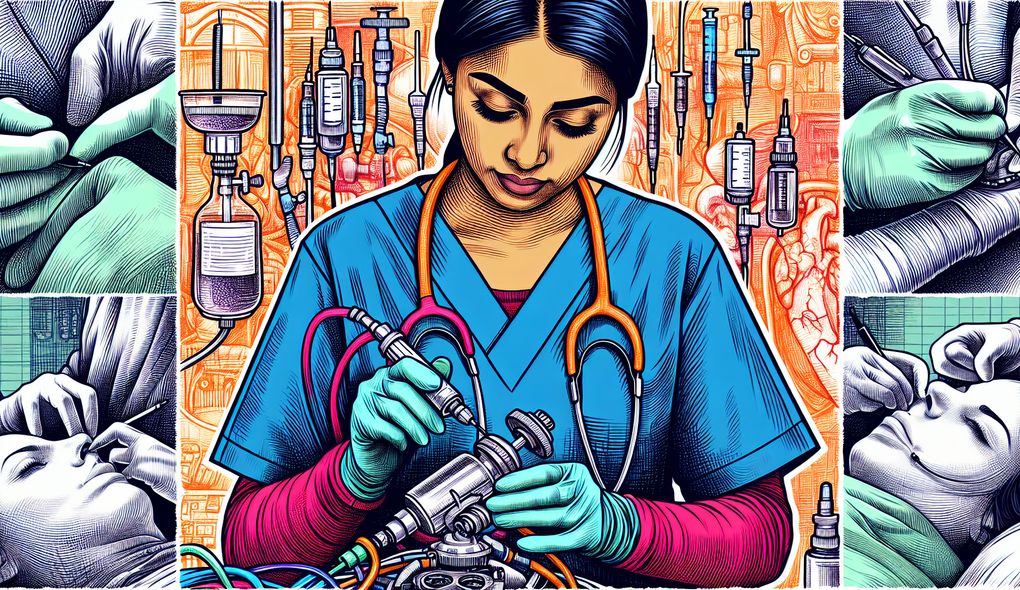Give an example of a time when you had to troubleshoot equipment issues during an anesthesia procedure.
INTERMEDIATE LEVEL

Sample answer to the question:
During a recent anesthesia procedure, I encountered a situation where the anesthesia machine was not delivering the intended amount of oxygen. I quickly recognized the issue and troubleshooted the equipment. I discovered that the oxygen flowmeter was partially blocked due to debris. I promptly cleaned the flowmeter and reestablished the oxygen flow. I then ensured that the oxygen levels were within the appropriate range before proceeding with the procedure. The patient remained stable throughout, and the procedure was successfully completed without any complications.
Here is a more solid answer:
During an anesthesia procedure, there was an equipment malfunction where the oxygen concentration monitor was not providing accurate readings. This was a critical issue as the patient's safety was at risk. I quickly identified the problem by comparing the monitor's readings with the patient's clinical signs. To troubleshoot the issue, I checked the sensor connections, replaced the sensor with a spare one, and verified the calibration settings. Once the equipment was functioning properly, I continued monitoring the patient's oxygen levels closely to ensure their safety. The prompt resolution of the equipment issue showcased my ability to think critically and problem-solve effectively in a high-pressure environment.
Why is this a more solid answer?
The solid answer provides more specific details about the equipment malfunction and the candidate's troubleshooting process. It also emphasizes the importance of patient safety and highlights the candidate's critical thinking and problem-solving abilities. However, it can still be improved by including examples of effective communication and interpersonal skills during the troubleshooting process.
An example of a exceptional answer:
During a complex anesthesia procedure, I encountered a situation where the ventilator suddenly stopped working. This was a critical issue as the patient's oxygenation and ventilation were solely dependent on the machine. I immediately informed the rest of the surgical team about the problem and swiftly took charge of troubleshooting. I first checked the power supply and confirmed that it was functioning properly. Then, I carefully inspected the ventilator's tubing and found a kink that was obstructing the airflow. I promptly corrected the tubing alignment and performed a thorough systems check to ensure the ventilator was functioning optimally. Throughout this process, I maintained clear and effective communication with the surgical team, keeping them updated on the progress and reassuring the patient's safety. By swiftly identifying and resolving the equipment issue, I demonstrated my ability to work well under pressure, think critically, and communicate effectively.
Why is this an exceptional answer?
The exceptional answer provides a more complex scenario where the candidate had to troubleshoot a critical equipment issue during a high-stakes anesthesia procedure. It showcases the candidate's ability to take charge, communicate effectively, and solve problems under pressure. The use of specific details and examples enhances the answer's credibility. Additionally, the candidate's proactive approach to maintaining clear and effective communication with the surgical team and reassurance to the patient's safety further highlights their exceptional interpersonal skills.
How to prepare for this question:
- Familiarize yourself with different anesthesia equipment and their components.
- Stay updated with the latest advancements and best practices in anesthesia troubleshooting.
- Practice critical thinking skills by analyzing complex scenarios and identifying potential issues.
- Enhance communication and interpersonal skills through role-playing exercises and active listening techniques.
What are interviewers evaluating with this question?
- Strong understanding of anesthesia techniques, equipment, and medications
- Ability to work well under pressure in a fast-paced environment
- Excellent communication and interpersonal skills
- Critical thinking and problem-solving abilities

